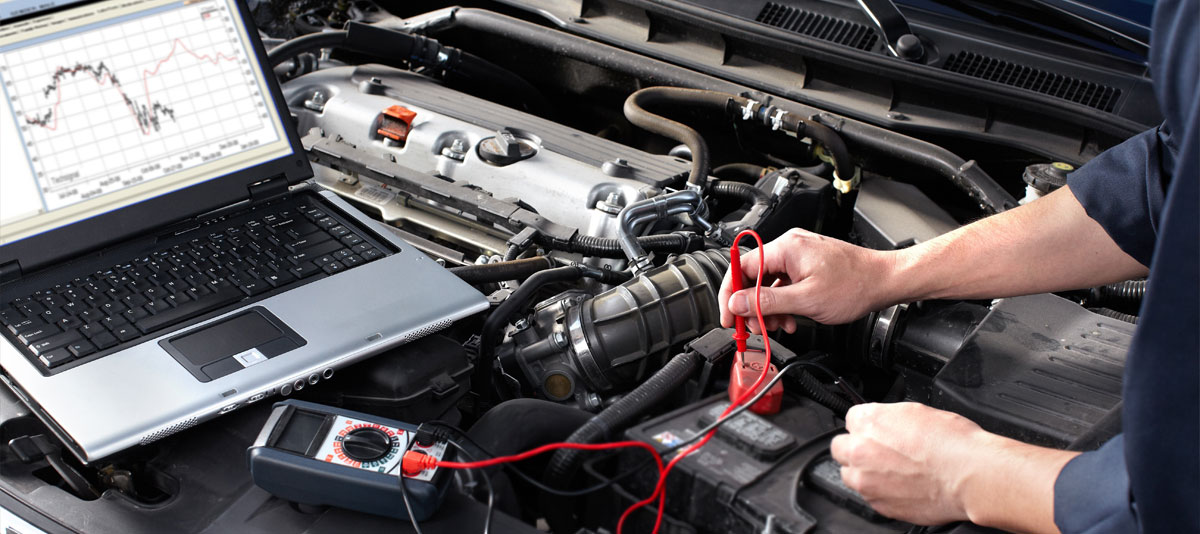For many vehicle owners, understanding the maintenance needs of a car can be confusing, especially when it comes to differentiating between Car Diagnostics Essex and car servicing. These two terms are often used interchangeably, but they serve entirely different purposes. Knowing the distinction can help you maintain your vehicle more effectively and avoid unnecessary expenses in the long run.
What is Car Diagnostics?
Car diagnostics is the process of using digital tools to identify problems in a car’s electronic and mechanical systems. Most modern vehicles are equipped with onboard computers, known as Engine Control Units (ECUs), that monitor performance and safety features when something goes wrong, such as engine misfires, battery faults, or issues with exhaust systems.
A mechanic or technician can then use a diagnostic scanner (sometimes called an OBD-II scanner) to read these codes and determine what’s causing the issue. This process is quick and efficient, making it essential for modern car repairs.
Diagnostics is typically used when the check engine light comes on or when the driver notices irregular behaviour like unusual engine noise, rough idling, increased fuel consumption, or poor acceleration.
What Happens During a Diagnostic Test?
When you take your car in for diagnostics, the technician plugs a scanner into the vehicle’s computer system. The scanner retrieves fault codes, which point to specific systems or components that may be malfunctioning, like sensors, ignition coils, fuel injectors, transmission modules, or airbag systems.
Once the codes are read, the technician may perform physical inspections or tests to confirm the issue. This information helps identify whether immediate repair is needed or if a minor adjustment could solve the problem.
What is a Car Service?
A car service is a scheduled maintenance procedure carried out to keep the vehicle operating safely, efficiently, and reliably. Unlike diagnostics, which are typically done when there’s a specific issue, a car service is preventative.
An interim service, performed every 6 months or 6,000 miles, covers the basics, including oil changes and tyre checks. A full service, usually done annually or every 12,000 miles, is more comprehensive and includes checking and replacing various parts and fluids, testing the brakes, inspecting the suspension, and ensuring that the vehicle is roadworthy and safe.
What Happens During a Car Service?
In a typical full service, the garage will replace the engine oil and oil filter, inspect and possibly replace air and fuel filters, check and top up fluids like brake fluid and coolant, examine the brakes, suspension, exhaust system, lights, and tyres, and carry out engine checks.
The goal is to catch wear and tear early before it becomes a serious issue. While a service doesn’t usually involve advanced electronic scanning, it’s critical for the long-term health and performance of the car.
When Should You Get Each Done?
You should consider a car diagnostic test if:
- Your dashboard shows a warning light (e.g., engine, airbag, or battery light).
- There’s a drop in performance, such as slow acceleration or poor fuel economy.
- You’re planning to buy a used car and want a health check.
On the other hand, you should schedule car servicing:
- Typically, every 6 to 12 months, based on how frequently and intensely you use your vehicle.
- When you need to uphold your vehicle’s warranty coverage.
- To increase the resale value of your car by keeping its service history up-to-date.
Which One is More Expensive?
At first glance, car diagnostics may seem more affordable. A basic diagnostic test usually costs between £40 and £80, depending on the garage, location, and vehicle model. However, the real cost comes if the diagnostics uncover a serious problem—like a faulty oxygen sensor, transmission issue, or catalytic converter failure—which could add hundreds to your repair bill.
In contrast, a car service is generally more expensive upfront. An interim service can range from £70 to £120, while a full service might cost £150 to £300 or more. This includes the labour, new oil, filters, and other parts. However, a service is meant to prevent major issues from developing, which can save you much more money in the long term.
Do You Need Both?
Yes, absolutely. Both car diagnostics and servicing are essential, but they serve different purposes.
Diagnostics is reactive—it helps you when something’s already wrong. It’s especially crucial for modern vehicles where many components are controlled electronically.
If you skip regular Car Service in Essex, you’re more likely to encounter issues that require diagnostics and costly repairs. And if you ignore warning lights and avoid diagnostics, you could unknowingly drive with a serious fault that might damage your vehicle or compromise your safety.


